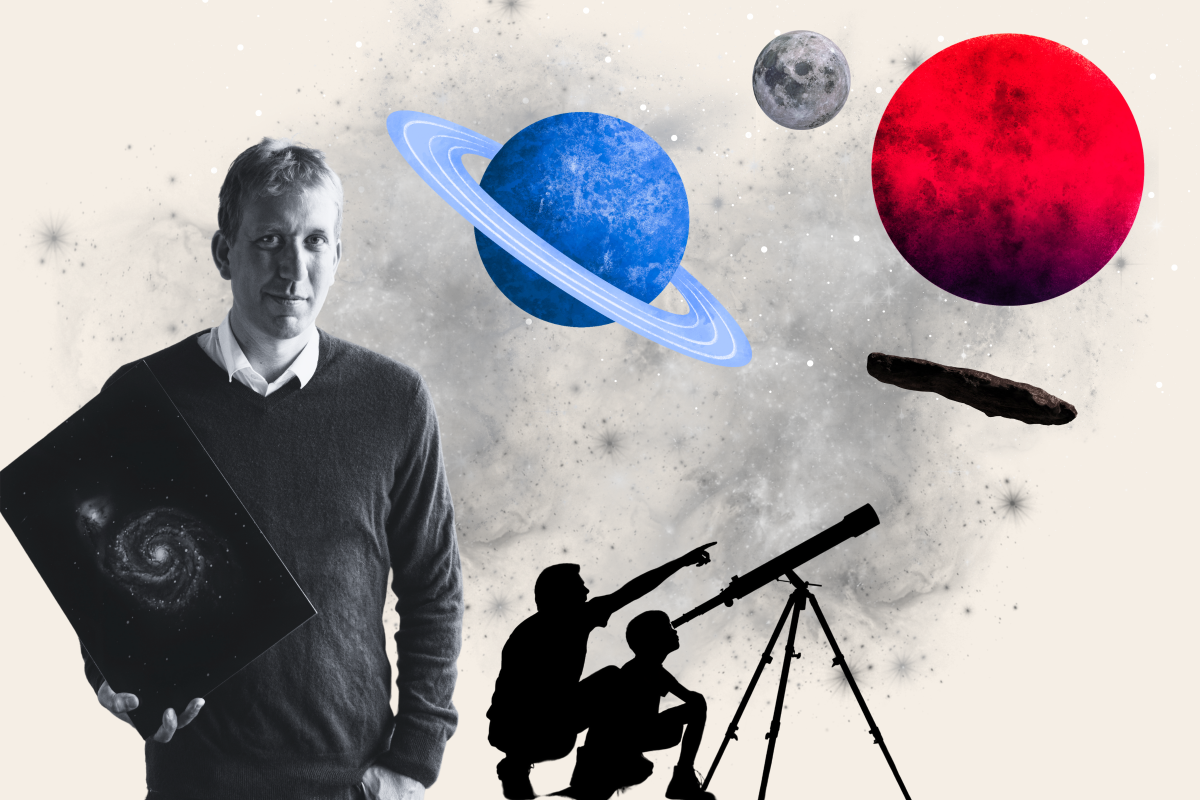Have you ever wondered where we came from? Not just our species, but the entire solar system?
The truth is, we don't really know. But by learning about our distant neighbors, scientists hope we can find out.
"We've got to start thinking about our solar system as part of the galaxy," Oxford University Astrophysicist, Professor Chris Lintott, told Newsweek. "We've got a neighborhood that we live in, our neighbors occasionally come and visit."
Lintott, who is also an author and co-presenter of the BBC's long-running astronomy program The Sky at Night, studies these galactic guests, known scientifically as interstellar objects. Only two such objects have been discovered to date—the mysterious, cigar-shaped 'Oumuamua in 2017 and the comet Borisov in 2019. But there are likely millions of these things floating around our galaxy.

"Something arriving from beyond the solar system sounds like science fiction, but actually we think it's happening all the time," Lintott said. "These things have been wandering through the galaxy for millions—maybe even billions—of years, and then they just happen to pass by our solar system. There's probably an interstellar object passing through the solar system right now—we just haven't spotted it."
But why do astrophysicists like Lintott study these objects?
"They are our only chance to get up close and personal with a bit of a different solar system," Lintott said. "We don't really understand how our solar system formed. We know the basics. We know that you start off with basically dust, sand grains and gas, and gravity pulls all that stuff together to form planets. But almost all of the details—like how many planets like the Earth do you form, how do big planets like Jupiter affect other planets—all of these questions are completely open. By looking at the building blocks of different solar systems, we can start to answer those questions.
"The first thing we want to know is what these things are made of, we think these things formed at the same time planets form around stars, so if we can work out what they're made of [we could potentially begin to] understand how planets form elsewhere."
Today, these objects are hard to spot—we have to be pointing our telescopes and measuring instruments in the right place at the right time. But this is all about to change.
"We're building a telescope called the Vera Rubin observatory," Lintott said. "It's got the world's largest digital camera, it's as big as the biggest telescope in the world today, and it's going to do a very special job: it's going to scan the whole sky every three nights and will send an alert whenever it detects any change in brightness or movement."
Lintott hopes that these observations will give us the data we need to spot more interstellar interlopers. Indeed, during the 10-year study period, we can expect dozens of these discoveries.
"When I'm feeling particularly optimistic it could be around 1000," Lintott said. "It's really exciting."
And here's where you come in: "The machines [that crunch all these numbers] turn out to be good at telling you what's unusual but not what's interesting," Lintott said. "So we think we'll need people and volunteers to tell us which of the unusual things are worth paying more attention to."
To participate, head over to the free Zooniverse citizen science platform and join millions of volunteers around the world collaborating on the next "astronomical revolution."
And to learn more about stumbling across the secrets of the universe, you can read Lintott's latest book, Accidental Astronomy, coming out in June.
"These things are out there and, if we have the right technology, we can catch them," Lintott said.
Do you have a tip on a science story that Newsweek should be covering? Do you have a question about aliens? Let us know via science@newsweek.com.
Uncommon Knowledge
Newsweek is committed to challenging conventional wisdom and finding connections in the search for common ground.
Newsweek is committed to challenging conventional wisdom and finding connections in the search for common ground.
About the writer
Pandora Dewan is a Senior Science Reporter at Newsweek based in London, UK. Her focus is reporting on science, health ... Read more
To read how Newsweek uses AI as a newsroom tool, Click here.








